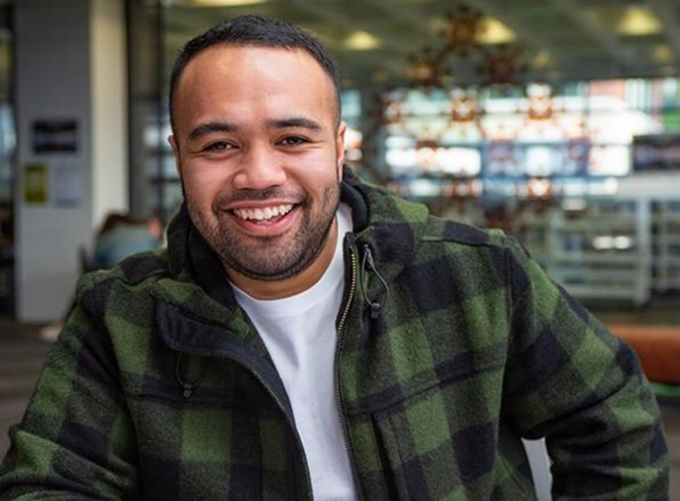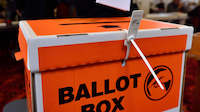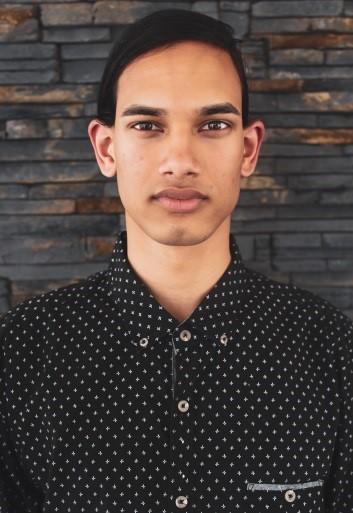
By Dominic Godfrey, RNZ Pacific journalist
Help with living costs while studying and extra support for mental health are two areas Pacific tertiary students want given more attention with the New Zealand general election.
Universities NZ figures show there were 10,000 full-time Pasifika students enrolled in May, an increase of 35 percent since 2010.
The last two national budgets have committed $107.6 million to help Pacific communities over the next 30 years, but tertiary students say there are urgent needs that must be addressed.

“The first one is mental health and well-being,” according to Leilani Vae’au, while for Ali Leota “one thing for sure is introducing a universal education income”.
Vae’au is at Wellington’s Victoria University working towards a bachelor degree in political science, international relations and religious studies.
She is also on the university’s Pasifika student council.
The 20-year-old is not eligible for student allowance to help with living expenses because her parents earn over the threshold. Student allowance begins to drop once parents earn beyond $56,888.52 a year before tax. If parents jointly earn $98,653.52 or more the student is ineligible.
‘Three younger siblings’
“But I have three younger siblings under me who depend on that and other family members who depend on my parents,” Vae’au explained.
“And I can’t get that aid so that I don’t have to work all the shifts I work to be able to study and focus on that because of the fact my parents make money to support my family.”
Instead, she meets her living costs working multiple office shifts, which she balances with full-time study, student council commitments and a busy home life.
During the Level 4 lockdown she was relieved to keep her job, but from home when her bedroom became her office, living room and study. The lines blurred between study, work and family life.
“Over covid, I didn’t have the opportunity to compartmentalise my house which has six people living in it and a hundred different Zoom calls going on at the same time.”
Vae’au found the inability to separate these aspects of life particularly challenging.
“As a child of the Pacific or as a child in a multi-generational home, as the eldest child as well, there are lot of factors that were still impacting mental health-wise and just stability-wise in the home environment.”
University difficult to navigate
Fellow Vic student Rosina Buchanan is a self-described “queer non-binary person of colour with a disability”.
The Bachelor of Health student has found university difficult to navigate without adequate mental health support and would like to see greater equity when meeting the challenges campus life presents.
“Because I would encounter quite a bit of ableism, elitism, classism, homophobia, being misgendered, racism, and that is definitely a lot of barriers to being able to thrive.”
For Ali Leota, the national president of the Pacific student body Tauira Pasifika, financial support is key.
“One thing for sure is introducing a universal education income” he said, challenging the government to help provide a hand up to provide Pasifika students with a level playing field.
“The public health major would like to see student allowance eligibility reconfigured in a way that’s fairer to Pacific families, as the parental income threshold doesn’t adequately take into account the number of dependants.
“And coming from a big family, we’re kind of victims of that,” Leota says.
Universal education income
“So therefore, implementing a universal education income is a way to pave the way forward to making tertiary education accessible and fit for purpose for our Pacific learners.”
Post-graduate students should also be included in the ‘universal education income’ according to Leota, who pointed out the incumbent government had failed to reinstate their financial backing which he said was a barrier to Pasifika achieving masters and doctoral success.
It is also a barrier to Pasifika moving into academia.
“Do they go to work or do they continue to study?” Leota says.
“Of course nine times out of 10 our Pasifika students will opt to work to go and help support families but a universal education income will enable our students to climb up the ladder and make our tertiary spaces a space where we feel like we’re welcomed.”
Leota says Pasifika people are underrepresented in academia, even in Pacific studies, and pointed to studies by Dr Sereana Naepi and Dr Tara McAllister who asked Why isn’t my professor Pasifika?
The incumbent government has committed to “confronting systematic racism and discrimination in education” as part of its five point action plan to support Pacific learners.

More student body support
University of Auckland law student Shaneel Lal says they can help address it immediately by offering more support to Pacific student bodies which in turn provide support to students.
Lal’s family moved from Fiji when he was 14 and he attended Auckland’s Ōtāhuhu College where his hard work was recognised, being named school Dux. The Youth Parliament 2019 MP who represented Jenny Salesa said he had difficulty transitioning from the strong Pasifika and Māori-dominated culture of high school to the University of Auckland.
“I went from a very collectivist community to a very individualist community where I went from being a person to a number, and nothing really prepares a young Pacific person for that transition.”
The 20-year-old said he was overwhelmed with the culture shock at the time and dropped out. Although he is back at university, he would like more attention paid by tertiary institutions to learning priorities and styles from this part of the world.
“For example, Māori communities are underpinned by the fundamental principles of whanaungatanga and we have similar concepts in our Pacific communities that we exist as a community,” said Lal.
“That is missing at university. University is about competing rather than collaborating and working together.”
While Labour has released a five-point action plan to improve things for Pacific students, including “to respond to unmet needs, with an initial focus on needs arising from the covid-19 pandemic”, other parties lack university specific education policy for Pasifika.
This article is republished by the Pacific Media Centre under a partnership agreement with RNZ.













































